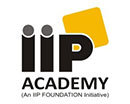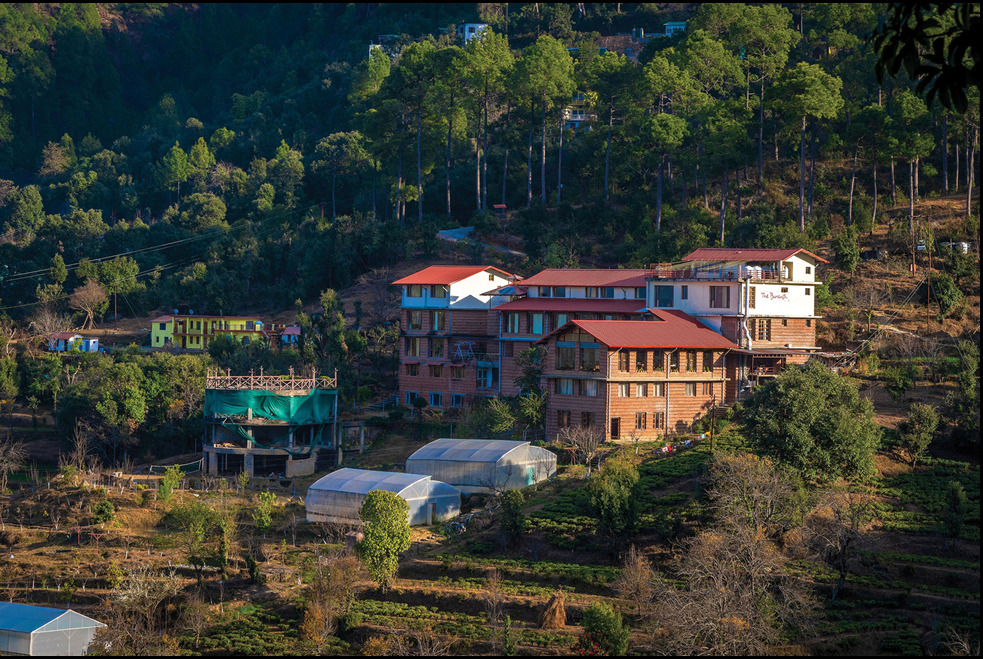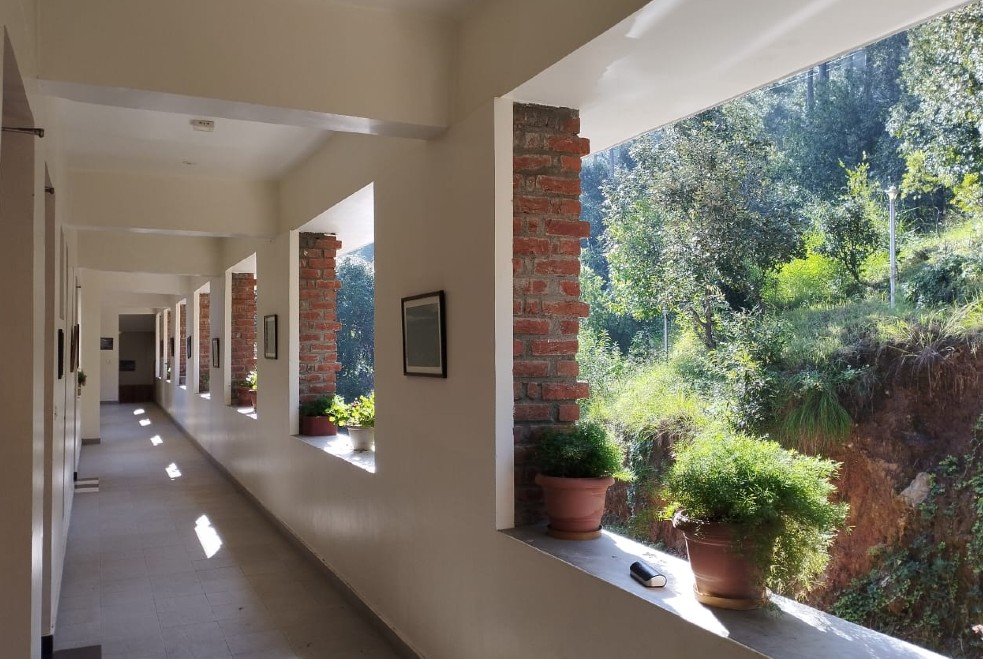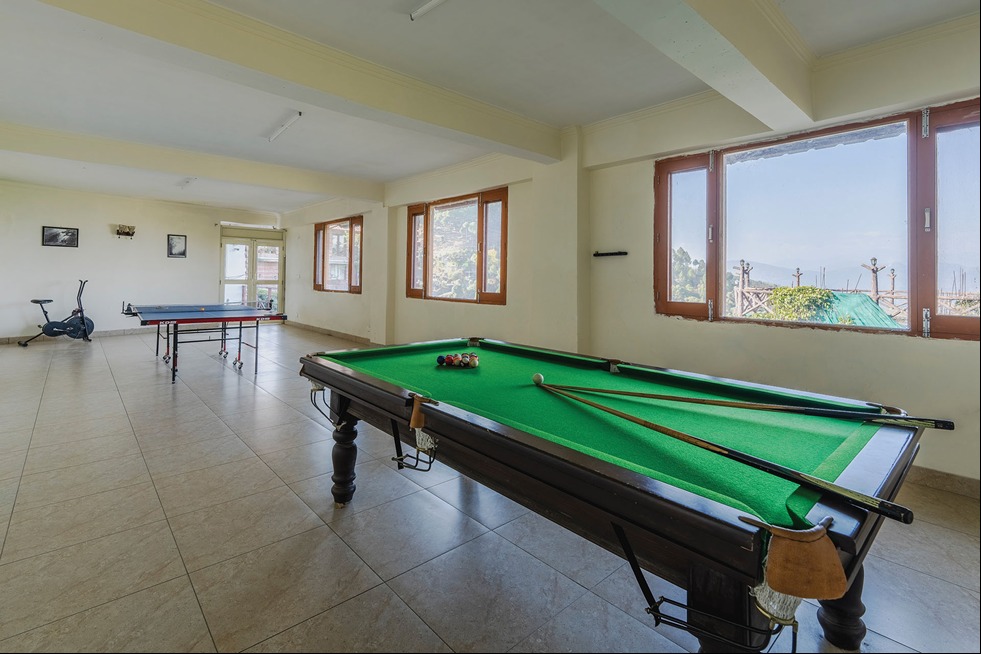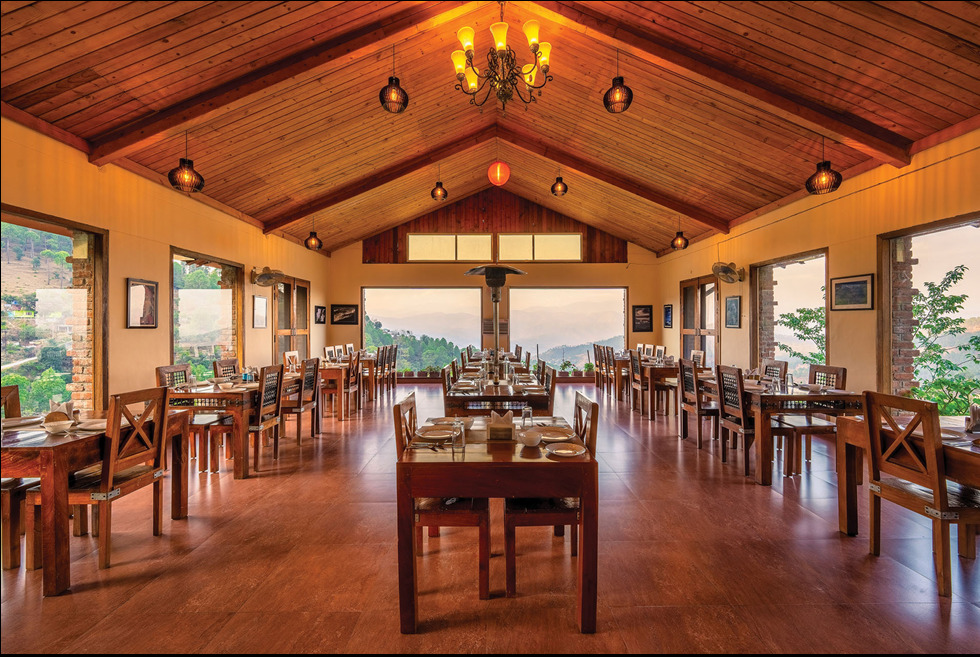Master of Fine Arts - Painting
COURSE OVERVIEW
Four Semester Breakdown – 2 Year Programme
Duration: 2 years (4 semesters)
Mode: Mandatory Residential Program
Location: IIPCCA, Kausani, Himalayas
Seats Reserved for Overseas Students: 15%
Interdisciplinary Studio Practice
Mentored studio sessions with guidance from painting, photography, and digital media experts. This module encourages students to explore multiple mediums, creating a rich, interdisciplinary approach to their artistic practice.
Transcendental Meditation and Artistic Growth
Led by Jay Paul Lapointe, this course will continue to guide students in practicing transcendental meditation, helping them integrate spiritual clarity into their artistic endeavors.
Global Exposure and Industry Networking
Students will have opportunities to intern with art galleries, participate in international exhibitions, and collaborate with artists and curators from around the world, preparing them for a professional career in the art world.
The MFA in Painting at IIPCCA offers a unique interdisciplinary curriculum, blending Vedic wisdom with contemporary art practices and global art history. Through practical work, critical research, and deep philosophical exploration, students will emerge as innovative artists and thinkers, ready to contribute to the world of visual arts on a global scale.
1st Semester : Foundations in Vedic Philosophy, Art History, and Technical Skills
Theme: Exploring the Spiritual and Historical Roots of ArtThe first semester lays the foundation for a holistic understanding of painting, introducing students to the philosophical roots of Indian art, while also providing a global perspective on the history of Western art and various artistic movements. This semester emphasizes technical skill development, historical analysis, and personal introspection through Vedic philosophy.
- Historical Philosophy in Painting (Ravinder Sharma): A detailed study of the Vedic principles of art and aesthetics, examining how traditional Indian painting aligns with spiritual practices. Students will also study the influence of Western art movements such as Impressionism, Cubism, Surrealism, and more, understanding how these movements shaped modern artistic practices.
- Technical Foundations of Painting (Shakti Singh Ahalawat): A course focusing on mastering the fundamental skills of painting, such as composition, color theory, material exploration, and surface preparation. Emphasis will be placed on both analogue techniques and contemporary methods.
- Visual Culture and Analysis (Vinati Sehgal): This course introduces students to the cultural significance of visual arts in both Eastern and Western traditions. The curriculum includes a comparative study of how visual culture reflects societal changes and spiritual values.
- Introduction to Transcendental Meditation (Jay Paul Lapointe): Meditation sessions to help students achieve creative clarity and inner calm, aligning their artistic processes with Vedic spiritual practices. These sessions will focus on connecting creativity to mindfulness and self-awareness.
2nd Semester : Artistic Expression, Interdisciplinary Learning, and Contemporary Approaches
Theme: Expanding the Creative Horizon through Collaboration and Contemporary PracticeIn the second semester, students explore interdisciplinary approaches, experimenting with diverse mediums and collaborating across different artistic fields. This semester encourages the development of a contemporary artistic voice while drawing from historical influences and Vedic principles.
- Vedic Aesthetics and Symbolism (Ravinder Sharma): A study of symbolism in Indian art, particularly in relation to Vedic philosophies. Students will explore the use of sacred symbols, color symbolism, and cosmic concepts in both traditional and contemporary contexts.
- Advanced Techniques in Painting (Shakti Singh Ahalawat): Focusing on advanced painting techniques, including mixed media and installation art. Students will be encouraged to explore contemporary trends in art, combining them with traditional methods to create innovative work.
- Art History and Western Isms (Manuello Paganelli and Dr. Maja Jerruntrup): A comprehensive course on the major art movements in the Western world, such as Renaissance, Baroque, Romanticism, and the avant-garde movements of the 20th century. This course will also discuss the globalization of art, connecting these movements to contemporary trends in painting and photography.
- Practical Project Submission & Viva Voce: Students will create a personal project that integrates Vedic symbolism with contemporary practices, receiving feedback through a viva voce presentation with faculty and international mentors.
3rd Semester : Research-Oriented Artistic Practice and Critical Inquiry
Theme: Conceptualization, Research, and Contemporary Art ProductionIn this semester, students delve deeper into artistic research and the development of their final projects. The focus is on exploring conceptual frameworks, while engaging in a critical inquiry of global art practices and the influence of spiritual traditions on contemporary art.
- Contemporary Indian and Global Painting Practices (Ravinder Sharma): A study of contemporary Indian painters and their global counterparts, exploring how spirituality, culture, and politics intersect in modern art. Students will compare and contrast Indian and Western approaches to painting, understanding the role of Vedic aesthetics in contemporary global art.
- Research Methodologies for Artists (Shakti Singh Ahalawat): A course designed to equip students with the tools for conducting artistic research, including critical analysis, research writing, and artistic inquiry. Students will learn how to use research to fuel their creative processes and articulate their artistic vision.
- Writing and Critical Thought in Visual Arts (Vinati Sehgal): Students will develop critical writing skills, producing artist statements, exhibition reviews, and theoretical essays on contemporary visual culture. This course emphasizes the connection between thought and artistic practice, teaching students how to express their ideas in both visual and written forms.
- Interdisciplinary Mentorship with Global Artists (Manuello Paganelli and Dr. Maja Jerruntrup): Students will engage in interdisciplinary collaboration with mentors, learning how to integrate painting, photography, and digital media into their work. The mentorship will focus on creative synthesis and the blending of artistic mediums.
4th Semester : Dissertation, Exhibition, and Professional Practice
Theme: Manifesting Artistic Vision and Preparing for the Global StageThe final semester is dedicated to culminating all learning into a dissertation and a major creative project. This semester encourages students to position themselves as professionals, ready to contribute to the global art world with a strong foundation in Vedic philosophy and contemporary art practices.
- Dissertation: A research-based dissertation reflecting the student’s creative journey, integrating their Vedic influences, artistic vision, and contemporary practices. The dissertation will demonstrate the intellectual depth of the student's work.
- Final Project Development: Each student will produce a final body of work that encapsulates their artistic journey, combining the principles of Vedic wisdom with modern and contemporary artistic trends. The work will be presented in a public exhibition.
- Exhibition Curation and Presentation (Ravinder Sharma and Global Mentors): The final exhibition will be curated in collaboration with the faculty and global mentors. The exhibition will showcase the student’s work, presenting it to the art community and the public as a celebration of two years of intellectual and artistic exploration.
- Viva Voce: Students will defend their work through a viva voce, discussing their research, artistic process, and how their final project connects Vedic philosophy to contemporary global art.
Why Study in the Himalayas?
Studying at IIP Academy Kausani offers more than just an education in photography. The mandatory residential program immerses students in an environment of creativity, introspection, and personal growth. Inspired by the Rishis, saints, and Vedic philosophers who once sought wisdom in these mountains, our academy encourages students to become Thinkers, Leaders, and Artists—photographers who are not just skilled, but visionary in their approach.
Inspiring Environment
The tranquility of the mountains allows you to focus deeply on your craft and gain inspiration from the natural beauty around you. The residential program offers uninterrupted access to this inspiring setting, enabling sustained creative work.
Cultural Richness
Engage with the rich traditions, customs, and landscapes of Kumaun, all of which will inform and inspire your work as a photographer. Living on campus ensures that you are fully immersed in the local culture and heritage.
Holistic Development
Our residential programs foster not only technical and creative skills but also personal growth, helping you develop resilience, leadership, and a global perspective.
Why a Mandatory Residential Program?
We understand that parents may have questions about the residential nature of our program. Here’s why we believe this immersive learning experience is essential:
Focused Learning Environment
Living on campus allows students to concentrate fully on their studies, free from the distractions of commuting or outside interruptions. The collaborative environment encourages creativity and deep learning.
Safe and Secure Campus
The well-being of our students is a top priority. Our campus is a secure, gated facility with 24/7 monitoring to ensure a safe and supportive environment for all students.
Healthy and Balanced Lifestyle
The serene location of Kausani promotes both mental and physical well-being. Students enjoy fresh mountain air, nutritious meals, and the opportunity to engage in outdoor activities that promote a balanced lifestyle.
Community Building
The residential program fosters strong bonds among students, creating a sense of community and collaboration that is invaluable for personal and professional growth. Living together helps build lasting friendships, team spirit, and shared learning experiences.
Modern Facilities
Our campus boasts advanced learning spaces, high-end digital photography equipment, and purpose-designed studios with seamless WiFi connectivity. As a residential student, you’ll have around-the-clock access to the latest tools and technology to hone your craft.
Innovative Curriculum
Our dynamic curriculum integrates traditional photography techniques with modern applications, ensuring you stay on top of emerging trends. You will gain a solid foundation in theory, practical skills, and research-based methodologies while learning from Masters, PhDs, and industry veterans.
Global Exposure
Through partnerships with international institutions, students have opportunities for cultural exchange, collaborative projects, and exposure to global practices in photography. This mandatory residential setup fosters collaboration, engagement, and shared learning experiences that prepare students to work both locally and internationally.
- Annual Fee (Includes Tuition Fee, Studio Charges, Exhibition Curation, Study Tour, 24-hour Library Access): ₹ 4,37,500 per year.
Total Fee for 4 semesters: ₹ 8,75,000 - Residency Cost (Includes Dormitory/Sharing Stay, Sports Facility, Laundry Services, and Food): ₹ 2,64,000 per year
- Personality Grooming (Covers Languages, Camps and Events, Regular and Online Masterclasses): ₹ 20,000 per year
Our program offers a meticulously crafted blend of theoretical instruction, practical application, and hands-on experience. The schedule is designed to cultivate both creative vision and technical expertise, equipping students with the essential skills needed for a successful career in photography.
- Monday to Friday: A structured curriculum that includes practical sessions, field visits, library time, group discussions, and one-on-one mentoring with faculty.
- Timings
- Morning: 10:30 AM to 1:30 PM
- Afternoon: 2:30 PM to 5:00 PM
- Saturday: Masterclasses covering topics such as ethics, languages, culture, and philosophy, with free time for self-study.
- Sunday: Personal time for rest and reflection.

Ravinder Kumar Sharma weaved the dream of teaching art where people of all ages come together to learn & amp; start their journey into art. A renowned artist & amp; art educationist of India, Ravinder Kumar Sharma has been a mentor to a multitude of art enthusiasts all over the globe. His mission is to educate artists and creative professionals to be responsible contributors to society.
Our faculty under him comprises of experienced and versatile professionals from both academia and industry resulting in a rare blend of experience and expertise, indigenity and universality. Our curriculum takes into account the importance of both theory and practice, and thus promotes deep disciplinary knowledge along with sound technical know-how and practical skills.
